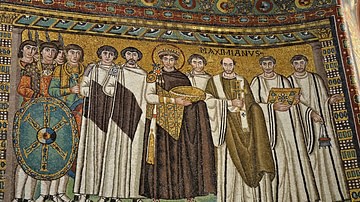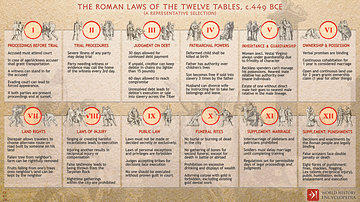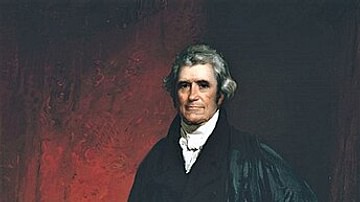Search
Remove Ads
Advertisement
Summary 
Loading AI-generated summary based on World History Encyclopedia articles ...
Search Results

Definition
Roman Law
Roman laws covered all facets of daily life. They were concerned with crime and punishment, land and property ownership, commerce, the maritime and agricultural industries, citizenship, sexuality and prostitution, slavery and manumission...

Definition
Ancient Egyptian Law
Ancient Egyptian culture flourished through adherence to tradition and their legal system followed this same paradigm. Basic laws and legal proscriptions were in place in Egypt as early as the Predynastic Period (c. 6000- c. 3150 BCE) and...

Definition
Corpus Juris Civilis - The Justinian Law Code
The Justinian Code or Corpus Juris Civilis (Corpus of Civil Law) was a major reform of Byzantine law created by Emperor Justinian I (r. 527-565 CE) in 528-9 CE. Aiming to clarify and update the old Roman laws, eradicate inconsistencies and...

Image Gallery
Ancient Rome in 8 Infographics
The culture of ancient Rome intricately blended laws, military values, and cultural innovations to lay the groundwork for a civilization that endured for centuries. In this gallery of infographics, we examine some of the specific aspects...

Image
The Roman Laws of the Twelve Tables, c. 449 BCE
An infographic illustrating The Laws of the Twelve Tables were a set of ancient Roman laws put together and displayed in public around 450 BCE. These laws formed the core of the Roman legal system and provided a written code of conduct and...

Article
Authority in Ancient Rome: Auctoritas, Potestas, Imperium, and the Paterfamilias
Authority in ancient Rome was complex, and as one can expect from Rome, full of tradition, myth, and awareness of their own storied history. Perhaps the ultimate authority was imperium, the power to command the Roman army. Potestas was legal...

Video
History of the Holidays: History of Thanksgiving | History
Although Thanksgiving celebrations dated back to the first European settlements in America, it was not until the 1860s that Abraham Lincoln declared the last Thursday of November to be a national holiday.

Definition
Marbury v. Madison
Marbury v. Madison (1803) was a landmark decision of the United States Supreme Court that established the principle of judicial review. In the decision, written by Chief Justice John Marshall, the court struck down a congressional statute...

Article
A Brief History of Tobacco in the Americas
The history of tobacco use in the Americas goes back over 1,000 years when natives of the region chewed or smoked the leaves of the plant now known as Nicotiana rustica (primarily in the north) and Nicotiana tabacum (mostly in the south...

Article
Cylinder Seals in Ancient Mesopotamia - Their History and Significance
Among the most interesting and revealing artifacts discovered from ancient Mesopotamia are cylinder seals. These fairly small items may be seen today in museum exhibits around the world but, perhaps owing to their size, they are not given...